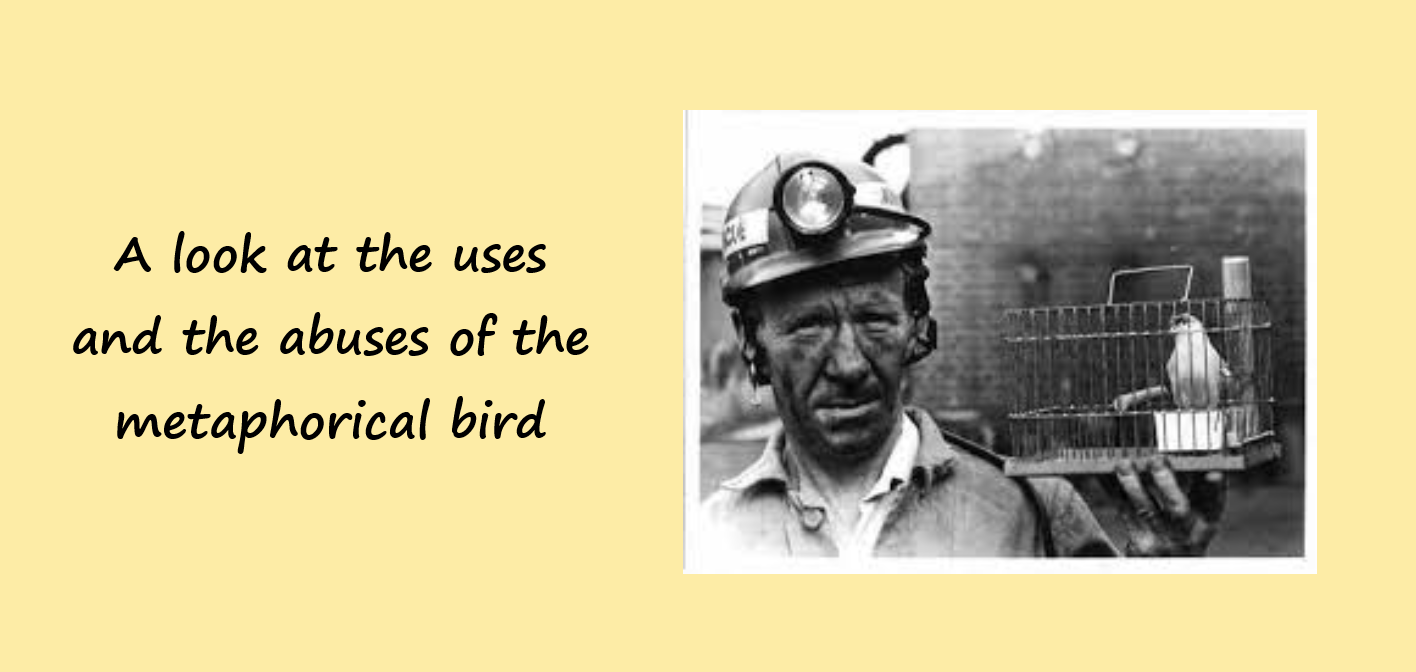I’m looking forward to the day when West Virginia will cease being “a canary in a coal mine”

Today, a number of newspapers carried an Associated Press article* by their medical writer, Mike Stobbe:
As US life expectancy falls, West Virginia offers lessons
Writing from Madison, West Virginia, Stobbe begins:
If you want to understand why U.S. life expectancy is declining, West Virginia is a good place to start.
The state is a bellwether of bad health, portending major problems years before they became severe nationally.
"It seems that the worst outcomes happen here first," said Dr. Michael Brumage, a West Virginia University public health expert who formerly ran the health department in Charleston. "We're the canary in the coal mine."
Stobbe lists the usual:
The drug overdose death rate for all Americans today is where West Virginia's rate was 10 years ago. The nation's suicide rate is where West Virginia's was nearly 20 years ago.
Obesity was common in West Virginia before it became widespread in the rest of the country. And life expectancy started tumbling in the Mountain State before it began falling across the U.S.
In a long article, Stobbe looks at the problems facing the state by focusing on Huntington and Mingo County while detailing their efforts to solve them. Stobbe is sympathetic and his article suggests reasons to be hopeful. (My one knock against the article is an irrelevant-to-his-thesis Hatfield/McCoy reference: is it required that writers must reference the 19th century feud as soon as Mingo County is mentioned?)
The canary in the coal mine
It occurred to me, as I first read the AP article, that this metaphorical "canary" appears to be getting more use of late. It also seems to me that it is often used with West Virginia or Appalachia being the canary -- something that make sense given the important role that coal mining has played in the region. A quick Google search of those terms yielded far more canaries in coal mines than I expected including the title of a dissertation and at least a half dozen books with a canary and a coalmine in the title.
Has the phrase become a cliché? A Wall Street Journal writer, Ben Zimmer, argued as much back in 2014:
a once lively figure of speech has been deadened into a cliché for any early warning signal.
Zimmer's article was followed by the Appalachian Project labeling it as one in 2015.
It may have finally reached the point of cliché, however, when it became a t-shirt line ("Canary in the coal mine men's clothing") at Café Press. (T-shirts are the bulletin boards for our cultural clichés and memes.)
The actual canary was effectively used by miners to warn about rising levels of methane. However, I'm hoping that the practice of writers and, for that matter, West Virginians, of calling the state a canary doesn't continue. There are already enough stereotypes associated with the state and region that set us apart from the rest of the nation. We don't deserve one more cliched framing device that, while used for the best of purposes -- to warn the rest of the nation, depends upon stereotypes which label its residents as different and where terrible things happen.
*Note -- neither Wheeling paper carried the story.